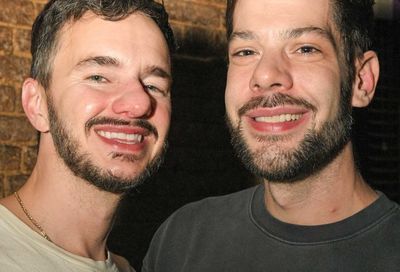Arkansas High Court Strikes Down State’s 2008 Adoption Ban
The Arkansas Supreme Court today, in an opinion published without dissent, struck down the state’s 2008 ballot initiative that prohibited unmarried, cohabitating individuals from adopting. As same-sex marriage is illegal and not recognized in Arkansas, this initiative had the effect of prohibiting same-sex couples from adopting children.
From the court:
On November 4, 2008, a ballot initiative entitled “An Act Providing That an Individual Who is Cohabiting Outside of a Valid Marriage May Not Adopt or Be a Foster Parent of a Child Less Than Eighteen Years Old” was approved by fifty-seven percent of Arkansas voters. The ballot initiative is known as the Arkansas Adoption and Foster Care Act of 2008 or “Act 1.” Act 1 went into effect on January 1, 2009, and is now codified at Arkansas Code Annotated sections 9-8-301 to -305.
The court noted:
We hold that a fundamental right to privacy is at issue in this case and that, under the Arkansas Constitution, sexual cohabitors have the right to engage in private, consensual, noncommercial intimacy in the privacy of their homes. We further hold that this right is jeopardized by Act 1 which precludes all sexual cohabitors, without exception, from eligibility for parenthood, whether by means of adoption or foster care. We quickly note that in certain instances, such as in custody, visitation, or dependency-neglect matters, the State and the circuit courts of this state have a duty to protect the best interest of the child. We will discuss this issue more fully below.
Then:
We strongly disagree with the State and FCAC’s conclusion that if this court finds that the categorical ban on adoption and fostering for sexual cohabitors put in place by Act 1 violates an individual’s fundamental right to sexual privacy in one’s home, state courts and DHS will be prohibited henceforth from considering and enforcing non-cohabitation agreements and orders in deciding child-custody and visitation cases as well as dependency- neglect cases. That simply is not the case. The overriding concern in all of these situations is the best interest of the child.
Finally:
Thus, Act 1 directly and substantially burdens the privacy rights of “opposite-sex and same-sex individuals” who engage in private, consensual sexual conduct in the bedroom by foreclosing their eligibility to foster or adopt children, should they choose to cohabit with their sexual partner. The pressure on such couples to live apart, should they wish to foster or adopt children, is clearly significant. …
Here Act 1 presents a pernicious choice for Cole. She can either give up her fundamental right to sexual intimacy in her home free from investigation by the State into her sexual practices in order to adopt or foster or forego the privilege of having children by adoption or fostering. We hold that the burden inflicted on her is direct and substantial.
The court, thus, concluded:
We conclude that the individualized assessments by DHS and our trial courts are effective in addressing issues such as relationship instability, abuse, lack of social support, and other factors that could potentially create a risk to the child or otherwise render the applicant unsuitable to be a foster or adoptive parent. These would be the least restrictive means for addressing the compelling state interest of protecting the welfare, safety, and best interest of Arkansas’s children. By imposing a categorical ban on all persons who cohabit with a sexual partner, Act 1 removes the ability of the State and our courts to conduct these individualized assessments on these individuals, many of whom could qualify and be entirely suitable foster or adoptive parents. As a result, Act 1 fails to pass constitutional muster under a heightened-scrutiny analysis.
Read the opinion: ArkDeptHumanSrvcsCole.pdf
Support Metro Weekly’s Journalism
These are challenging times for news organizations. And yet it’s crucial we stay active and provide vital resources and information to both our local readers and the world. So won’t you please take a moment and consider supporting Metro Weekly with a membership? For as little as $5 a month, you can help ensure Metro Weekly magazine and MetroWeekly.com remain free, viable resources as we provide the best, most diverse, culturally-resonant LGBTQ coverage in both the D.C. region and around the world. Memberships come with exclusive perks and discounts, your own personal digital delivery of each week’s magazine (and an archive), access to our Member's Lounge when it launches this fall, and exclusive members-only items like Metro Weekly Membership Mugs and Tote Bags! Check out all our membership levels here and please join us today!























